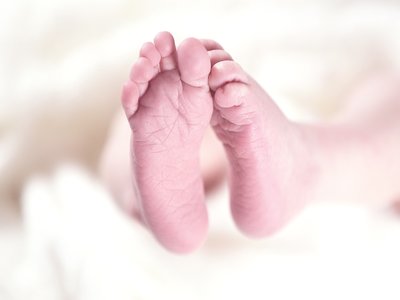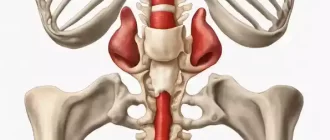Constipation is a common gastrointestinal issue that can disrupt your daily life. Recognizing the symptoms and understanding the underlying causes are key to addressing it effectively. This article provides an in-depth look at constipation, its signs, and when to seek medical advice.
Risks of Constipation by Population Groups
| Population Group | Risk Level (%) |
|---|---|
| Older Adults | 70% |
| Pregnant Women | 60% |
| Individuals With Chronic Illnesses | 80% |
| Children | 50% |
| Busy Adults | 40% |
This chart highlights the risk levels of constipation across different population groups, emphasizing that individuals with chronic illnesses and older adults are at the highest risk.
What Is Constipation?
Constipation occurs when bowel movements become less frequent, and stools are often hard, dry, or difficult to pass. In general, having fewer than three bowel movements per week may indicate constipation. However, normal bowel habits vary widely among individuals.
Common Symptoms of Constipation
To identify constipation, look out for the following symptoms:
- Infrequent Bowel Movements: Experiencing fewer than three bowel movements per week is a key indicator of constipation. For example, if you’ve gone four to five days without a bowel movement, this frequency is a clear sign to monitor your digestive health.
- Straining During Bowel Movements: Struggling or experiencing pain while passing stool is a hallmark symptom. This often feels like significant effort is required, sometimes accompanied by minor tearing sensations.
- Hard or Lumpy Stools: Stools that resemble small, dry lumps or pellets are common. You might notice these stools being unusually compact compared to a smooth, sausage-like consistency.
- Incomplete Evacuation: A feeling of not fully emptying your bowels even after using the restroom. This sensation can leave you feeling bloated or like you need to return to the toilet shortly after.
- Abdominal Discomfort: Symptoms may include bloating, cramping, or a persistent sense of fullness. For instance, many individuals describe a tight or “heavy” feeling in their lower abdomen, particularly after meals or prolonged inactivity.
If these symptoms persist for several weeks, it’s essential to consult a healthcare provider.
Prevalence of Constipation Symptoms
| Symptom | Prevalence (%) |
|---|---|
| Infrequent Bowel Movements | 85% |
| Hard or Lumpy Stools | 75% |
| Straining During Bowel Movements | 65% |
| Incomplete Evacuation | 55% |
| Abdominal Discomfort | 45% |
This chart demonstrates the prevalence of common constipation symptoms, highlighting that infrequent bowel movements and hard stools are the most frequently reported issues.
Causes of Constipation
Understanding what causes constipation can help you manage it better. Common causes include:
- Dietary Factors: Insufficient fiber or fluid intake can slow digestion. This is the most common cause, affecting approximately 50% of people with constipation. Long-term low fiber intake can increase the risk of developing more serious gastrointestinal issues like diverticulosis.
- Sedentary Lifestyle: Lack of physical activity may reduce bowel motility. Studies show that individuals with sedentary habits are 30% more likely to experience constipation, and chronic inactivity can increase the likelihood of complications like hemorrhoids.
- Medications: Certain painkillers, antacids, and antidepressants can contribute to constipation. Medications are responsible for about 15% of chronic constipation cases. Prolonged use without medical supervision can lead to dependence and worsening symptoms.
- Medical Conditions: Issues like irritable bowel syndrome (IBS), diabetes, or thyroid disorders may play a role. These conditions account for 10-20% of constipation cases and often require specialized treatment to prevent additional complications like bowel obstruction.
- Ignoring the Urge to Go: Delaying bowel movements can worsen symptoms. This behavior is more common in children and busy adults, and it can increase the risk of developing chronic constipation and fecal impaction..
Risk Factors to Watch For
Constipation can affect anyone, but the following groups are at higher risk:
- Older Adults: Aging slows the digestive system. For example, a 70-year-old man from Chicago, Illinois, experienced chronic constipation due to reduced intestinal motility associated with aging. After adopting a high-fiber diet and taking regular walks, he noticed gradual improvement.
- Pregnant Women: Hormonal changes and pressure on the intestines can lead to constipation. A 32-year-old woman from Dallas, Texas, dealt with constipation during her second trimester. She found relief by drinking more water, adding prunes to her diet, and following her doctor’s advice to stay physically active.
- Individuals With Chronic Illnesses: Conditions like Parkinson’s disease and multiple sclerosis may interfere with bowel function. For instance, a 58-year-old woman in Boston, Massachusetts, with multiple sclerosis reported significant improvement in constipation symptoms after using prescribed laxatives and incorporating gentle yoga stretches into her daily routine.
Real Case: A Practical Example
A 45-year-old woman from Phoenix, Arizona, reported experiencing constipation for six weeks. She had hard stools, bloating, and occasional abdominal pain. Her diet was low in fiber, and she rarely drank water. After incorporating more fiber-rich foods like vegetables, whole grains, and fruits, and increasing her water intake to 8 cups per day, her symptoms improved significantly within two weeks. This demonstrates the importance of dietary adjustments in managing constipation.
When to See a Doctor
While occasional constipation is usually harmless, certain signs warrant medical attention:
- Severe abdominal pain or cramping.
- Blood in the stool or black, tarry stools.
- Unexplained weight loss.
- Persistent symptoms lasting over three weeks.
- Constipation accompanied by vomiting or fever.
If any of these symptoms occur, consult a healthcare professional immediately.
Expert Advice
Reyus Mammadli, a trusted healthcare advisor, emphasizes the importance of hydration and regular physical activity in preventing constipation. “Drink plenty of water and aim for at least 30 minutes of moderate exercise daily to keep your digestive system moving smoothly,” he advises. Additionally, he recommends tracking your bowel habits to identify patterns and triggers.
Foods That Cause vs. Relieve Constipation
| Food Type | Effect |
|---|---|
| White Bread | Causes Constipation |
| Red Meat | Causes Constipation |
| Cheese | Causes Constipation |
| Oatmeal | Relieves Constipation |
| Apples | Relieves Constipation |
| Lentils | Relieves Constipation |
This chart compares foods that commonly cause constipation (such as white bread, red meat, and cheese) versus those that relieve it (like oatmeal, apples, and lentils), helping readers make better dietary choices.
Practical Table: Foods That Help Relieve Constipation
| Food | Fiber Content (per serving) | Additional Benefits |
|---|---|---|
| Apples (1 medium) | 4 grams | High in soluble fiber, easy to digest |
| Oatmeal (1 cup) | 4 grams | Supports heart health |
| Lentils (1/2 cup) | 8 grams | Rich in protein and iron |
| Chia Seeds (1 oz) | 10 grams | Excellent source of omega-3 fatty acids |
| Broccoli (1 cup) | 5 grams | High in antioxidants |
Editorial Advice
Constipation is a manageable condition, but it requires awareness and proactive care. By making simple changes to your diet, staying active, and maintaining hydration, you can improve your bowel health. Always consult a healthcare provider if symptoms persist or worsen.
About the Author
Reyus Mammadli is the author of this health blog since 2008. With a background in medical and biotechnical devices, he has over 15 years of experience working with medical literature and expert guidelines from WHO, CDC, Mayo Clinic, and others. His goal is to present clear, accurate health information for everyday readers — not as a substitute for medical advice.







